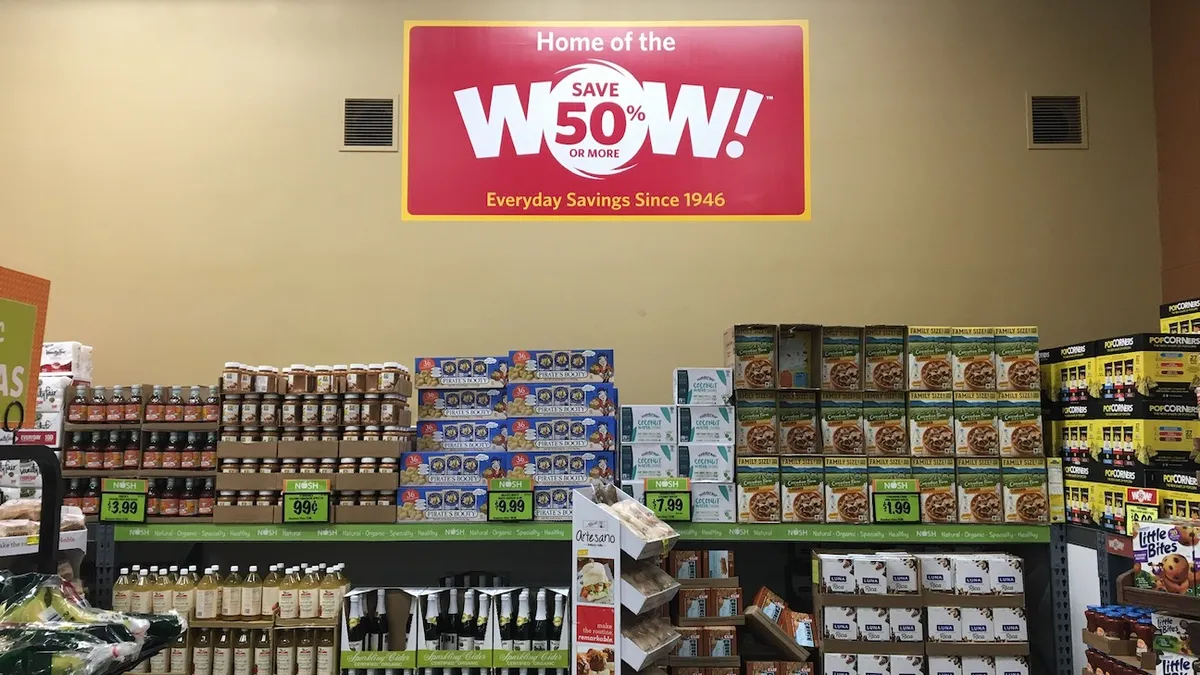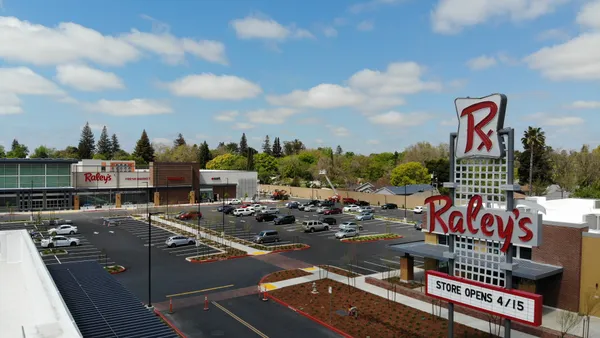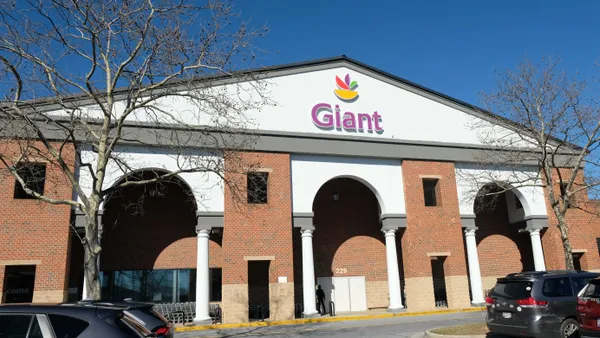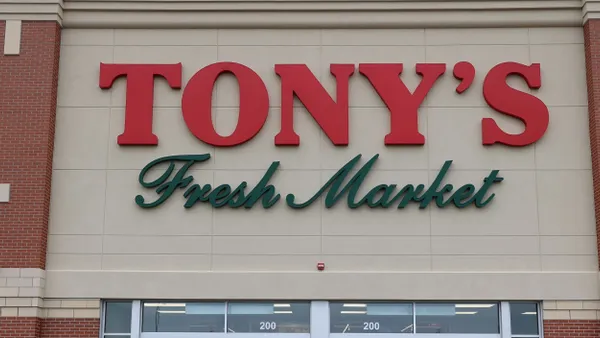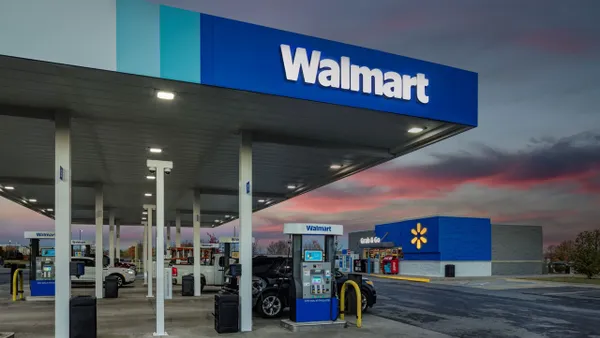Dive Brief:
- Discount grocery chain Grocery Outlet has filed for an IPO, according to a Monday SEC filing, and anticipates raising $100 million through its IPO. The filing came about two months after its original draft registration statement.
- The retailer is currently profitable, which it attributes to store count and its independent operator model. Grocery Outlet plans to expand its store base by 10% annually and in the long term, sees potential to grow to 4,800 stores nationwide, according to the filing.
- The company's sales grew to $2.3 billion in 2018 from $2.1 billion in 2017. Risks to its profitable model include leasing costs, failure to increase comparable store sales, product mix and pricing and failure to open stores on schedule.
Dive Insight:
Grocery Outlet's unique "opportunistic-buying" model and its reliance on independent operators has been highly successful, leading to the retailer's confidence in its growth and lofty expansion goals.
In its S-1 filing, the grocer details its expansion goals to add 400 new stores in existing states in the west, where it operates primarily, and 1,600 stores in neighboring states further east. In 2018, the retailer opened 26 new stores and expects to open 32 more in 2019. Considering each new store requires an average $2 million net cash investment, the $100 million Grocery Outlet plans to raise through its IPO should give the grocer a jump start on its ambitious growth plans.
As it expands, Grocery Outlet's business model could fill an untapped space and attract a customer base looking to support its community while buying discount products. By working with independent operators, the company aims to create stores with a neighborhood feel, offer a local product mix to meet customer demand and provide personalized customer service. According to the filing, the company typically shares 50% of store-level gross profits with its operators, which is a good incentive for them to aggressively grow their businesses.
With the rise of other discount retailers like Aldi, Dollar General and Lidl, it's clear that consumers are looking to fill their carts at a lower price. While these stores could become major competitors for the grocer as it grows, Grocery Outlet offers more name brand products. Consumers and grocery companies may be leaning into private label products as of late, but brand names still matter, especially when priced lower than competitors. At Grocery Outlet, these items are often offered at a reduced cost because products sold come from manufacturers with excess inventory.



